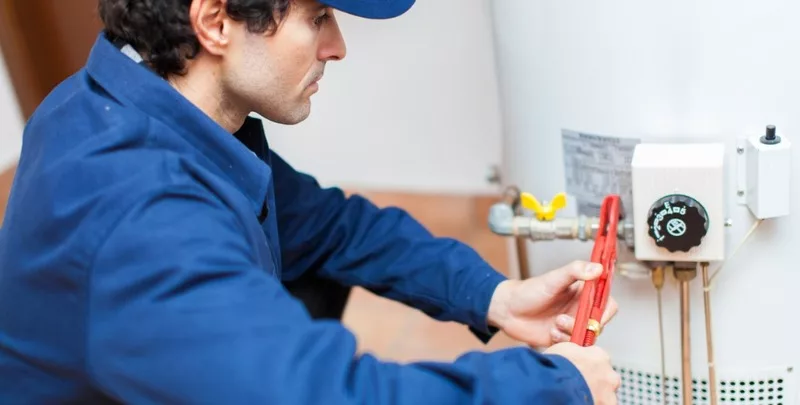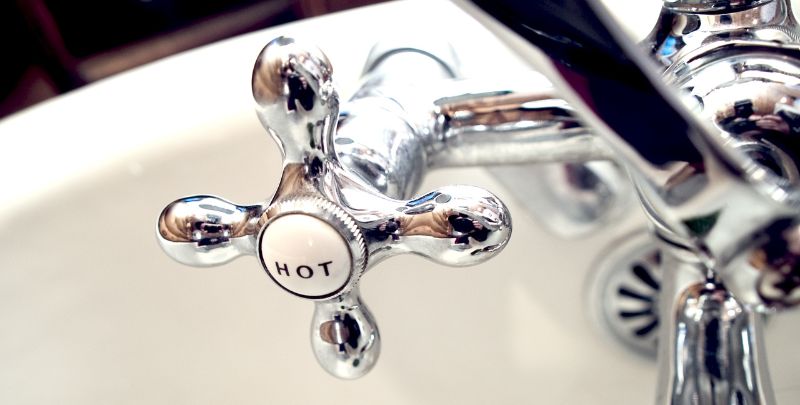
Advantages of an Electric Hot Water System
Hot water is important in every home in all seasons, and the most reliable source is an electric hot water system.
It’s always worthwhile to consider the advantages and disadvantages of your current system, whether you’re planning to buy a new unit or perhaps wondering about making a change.
Whatever your reasons might be – you could be doing some extensive renovations or building a new house – an electric hot water system is worth your consideration.
An electric hot water heater is a simple method to get a steaming hot water supply when you need it. Let’s examine six benefits of an electric hot water system, the types of units that are on the market, and find out if it’s the best hot water system for your situation.
1. Installation Costs are Low
There are good reasons why electric hot water systems are the most popular types in Australia. For a start, they are the cheapest to install.
A gas hot water system may seem more cost effective, but will require the installation of pipes and vents for the unit to run properly. An electric hot water heater is simple and straightforward to install in comparison.
The electric hot water storage tank can be installed inside or outside the home, as long as it is installed on a safe tray inside or on a concrete slab outside.
2. An Electric Hot Water System is Safe
One of the main features of an electric hot water unit is safety. With electricity there is no need to worry about a gas leak or a carbon monoxide (CO) leak, both of which are potentially deadly.
It’s recommended that households using gas should install CO detectors, but no such extra safety measures are needed with electricity.
There are still some safety issues and problems with electricity, such as blackouts, electric shock and electrical fires, but these issues will always exist as all homes are powered by electricity. Most problems are easily avoided if your electrical system is well maintained.

3. An Electric System is the Most Efficient Type
Gas hot water systems are often considered to be the most efficient type of unit, but they tend to lose heat because of the process of combustion and ventilation. This means energy is wasted, and it takes longer for the unit to operate at full capacity.
With an electric water heater there is no ventilation required. Because the heating of the water occurs inside the storage tank, there is no need for a flue (which a gas system requires).
Not only does the water in the tank heat up quicker, but there is no heat loss and therefore the system works more efficiently.
Electric water heaters are very easy to operate. There are no extra pipes or vents, and they can easily be customised to suit your needs.
If you’re thinking of installing solar panels, an electricity boosted solar hot water system is one of the most energy-efficient and cost-effective methods on the market.
4. Electric Hot Water Systems Last Longer
Many electric water heaters will last 15 years or even longer, compared to about 10 years for a gas system. Obviously that makes an electric unit a better long-term investment.
To get the best out of your electric hot water system it’s important to keep it well maintained. Electric hot water systems are also clean and give off no greenhouse gas emissions, so it’s also an environmentally responsible choice in the long term.
5. Compatible With Solar Power
An electric-boosted solar hot water unit is one of the most energy-efficient and cost-effective systems available. Gas-boosted solar power is also economical but it can’t run an entire household like electricity.
The drawback with an electric-boosted solar power hot water unit is the upfront cost, but once your solar panels have been installed, you’ll end up saving considerable money on energy bills. You’ll definitely save on water heating costs, which are a big part of your energy bills.
Also remember that natural gas is a fossil fuel while electricity can be generated by renewable sources. Either way, solar hot water systems are the way to go for renewable energy.

6. Electricity is Easily Accessible to Everyone
All homes are powered by electricity, but not all properties have easy access to gas mains. Your home has to be close to a natural gas source for it to be a viable option, while liquefied petroleum gas (LPG) cylinders can be a more expensive, high-maintenance choice, requiring regular refills.
Your property is already set up for electricity and no extra technology is required to install an electric hot water system. However, professional installation is always required when replacing or setting up a new electric hot water unit.
Types of Electric Hot Water Systems
There are two main types of electric water heaters – storage tank and continuous flow (or instantaneous) hot water. It’s also worth examining heat pump systems.
Here are some of the benefits of these systems:
- Storage tank – An electric storage system is the most common type of hot water system. It works by sending cold water into the tank, which is then heated by an element (or two elements, depending on the size of the tank). A thermostat controls the temperature of the water, which has to be above 60ºC so Legionella bacteria can’t grow. These units are available in a range of sizes to suit your needs and are ideal for big or small households.
- Instantaneous (or continuous flow) – Continuous flow systems are usually powered by gas, but electric models are available. An instantaneous hot water system heats only as much water as you need. Since no water is stored in an instantaneous system, there is no heat loss from a tank, nor is there a need to keep stored water at a consistent hot temperature. Electric instantaneous water heaters are compact and usually come with remotes for optimal temperature control.
- Heat pump system – A heat pump hot water system uses a storage tank and is a kind of solar powered unit without solar panels. It extracts heat from the ambient air and uses a heat exchanger unit to heat water in a storage cylinder. A heat pump system uses electricity to power the evaporator fan and compressor. It is energy efficient but only recommended for warmer climates.
Whatever your preference when it comes to a type of hot water system, an electric model has a number of advantages. If you’re planning on replacing or upgrading your current unit, take a close look at an electric hot water system by getting some professional advice.
For more information, contact the hot water system specialists at Mr Emergency.
Please note: This information is provided for advice purposes only. Regulations differ from state to state, so please consult your local authorities or an industry professional before proceeding with any work. See our Terms & Conditions here.


